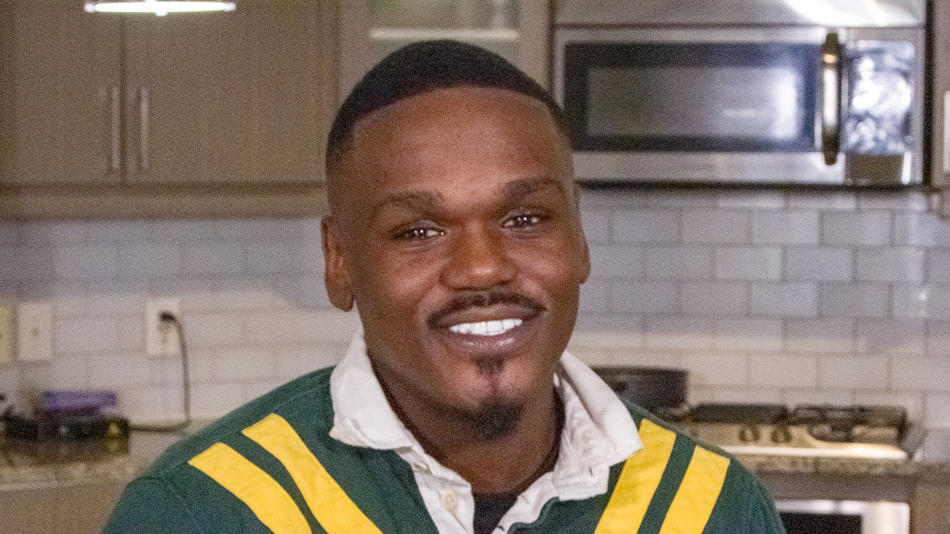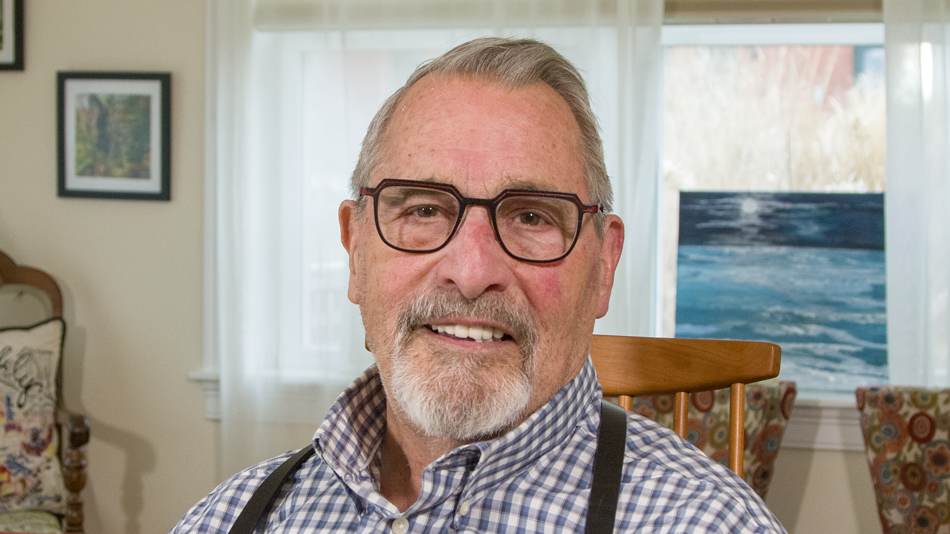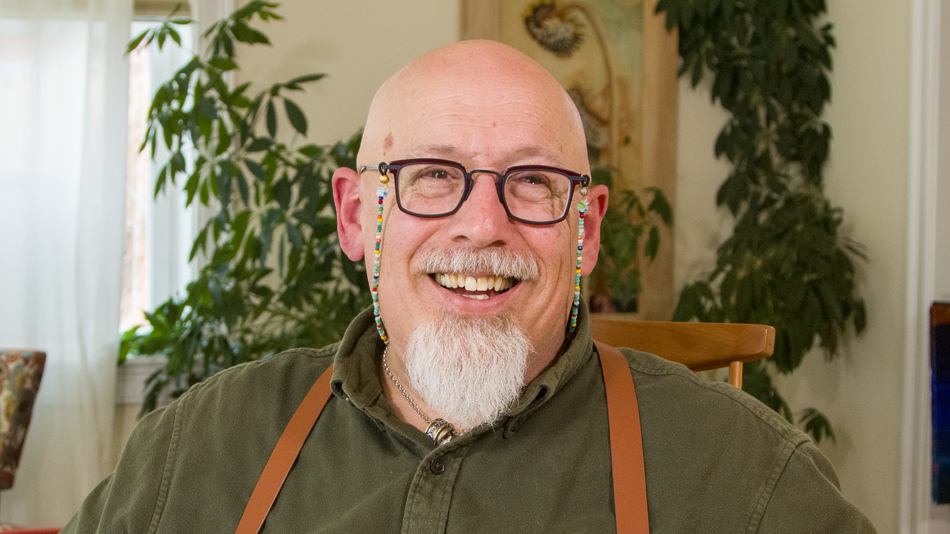My name is George Agundez. I am from Calexico, California. Growing up, you know, I used to go to church and I would enjoy going to church. But there was always that time where I would hear negative things about being a homosexual.
During that time, my dad would take us to the drive-in. I remember being at the drive-in and he took us to see “Saturday Night Fever” with John Travolta. I remember that scene where he comes out and he’s dancing in his polyester white suit, and I just looked at this guy and I’m like, wow, this just, this beautiful person.
And that’s maybe the first time that I said, “Wait a minute. You’re different. Why are you attracted so much to another person that’s the same sex as you?” Once I got to my junior year in high school, I had these feelings where, you know, I still felt attraction towards men. There has to be something out there that’s going to fix me. So what do I do? I decide, you know what, let me join the military.
I remember I joined the navy, I remember they bussed me to San Diego to sign my contract. This was back in 1991. I remember sitting with one of the recruiters and he started going through all these lists, you know, medical history. One of the questions was, “Are you a homosexual?” And, of course, I would say no and he would just check no, no, no, no.
I finally report to boot camp and I thought it was going to be the opposite, but then, you know, I’m in boot camp with 60 other guys in my same barracks and we’re taking showers together and I’m like, wait a minute, this is what I really like. But I’m scared, I cannot do anything, I’m just shy, I’m nervous. I finally finished boot camp without doing anything. The next thing I know, they tell me you’re gonna go to New Zealand for three years. At this time, already 19 years old and that’s when I went to my first gay bar.
I saw that there was this gay bar not far from where I was, from where the base was. I took a bus and I remember walking and I finally found it and I was walking back and forth. Should I go in? Shouldn’t I go in? Should I go in? Shouldn’t I go in? And I finally went in.
I went straight to the bar, ordered a drink and start drinking it fast. I was nervous but then I realized it’s just not me – there’s a lot of guys like me, there’s a lot of guys my age, older, that are also homosexuals. So one day, Saturday, I’m there an having a drink and I saw this other guy stationed with me. He looks at me and he looks and I looked at him and pretty much with just our own eyes, like, “What’re you doing here? What’re YOU doing here?”
And he came up to me and he says, “Don’t worry. I’m not gonna say anything. But I just want you to know that you’re not the only guy in the military that’s also homosexual.” That was such a great day. That was a really great relief and he was much older than me – I think he was like 10 years older than me. We instantly became really good friends. And he kind of became my mentor.
During this time, of course, Clinton was already in office. He had already taken away that policy of asking you if you are homosexual when you came in so a kid was – Don’t Ask, Don’t Tell. We cannot be, you know, just showing it aloud, you know, because we can still get in trouble and maybe get discharged.
I left New Zealand in 1994 and I was shipped to San Diego in 1994 on my first ship. USS Chandler Destroyer. We would hit these ports – Panama, Colombia, Peru. I wanted to go to a gay bar. So I would follow them to the straight bars and I would kind of just pretend that I was drinking. Once I saw that they were all kind of drunk, then I would just kinda excuse myself to the bathroom but I would head out.
Maybe in my last six years, I finally got orders to Jacksonville, Florida. I knew my – that I was going to become the supervisor. When I got there, the supervisor that I was going to replace had a little bit of a problem with me.
One time he kind of confronted me and then says, “You came here and you think you own shop now.”
And I said, “Well, I do own shop now. You’re about to leave. I’m taking over.”
“Well, I don’t like the way that you’re doing this. This is the way it’s been done and you should just keep it that way.”
I’m like, “Well, this is not the way I work.”
And then he says, “Well, I don’t care what you think but I think you’re just one of those weird f-f-f-f…”
And I said, “What’re you going to say? F-f-f… what was that?”
He’s like, “You’re just a weirdo.”
I said, “Oh my god, is that best you can say? What if I’m a weirdo, whatever that means to you?”
And he goes, “I’m outta here!” And he just took off.
And that’s when I said, “You know what? I don’t got time for this. I’m not going to hide it. If they ask me, I am. So what?”
I became really good friends with this female sailor and one time she approached me and she goes, “George, um, how come you’re not married?”
I was like, “Oh, I’ve just never been married.”
She goes, “Can I ask you something else?”
I’m like, “Yeah, sure.” And I knew what she was going to ask me.
She was like, “Are you gay? Are you homosexual?”
I said, “Yes.”
She goes, “Oh my god, that’s great!” I remember she said, “Maybe I should hook you up with other sailors that I know that are gay.” That’s when I was like, wow – nobody really cares whether you’re gay or not in the military.
When news came out that Don’t Ask, Don’t Tell was repealed by Obama, during that time, I only have seven months left in the military. My first reaction and also my thinking was, you know, thank god these young kids – they’re not going to have to go through the same obstacles that I had to go to. The same negativity that I had to listen to and just bite my tongue.
We all gotta take risks and at the end it pays off. I’m very grateful that I was able to do it for them. Because it has to start somewhere. Maybe there might be other challenges coming in the future – now they can do it for the other generation that’s coming in.








Share